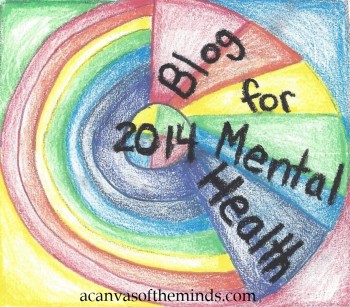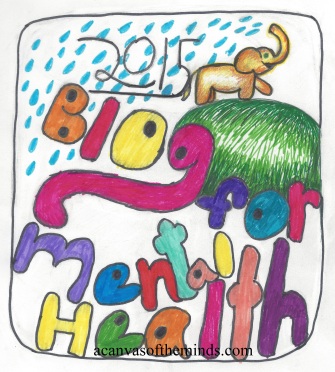I don’t like the word needy. I much prefer the word crazy to needy. Crazy can have many meanings, and not all of them are negative. Sometimes crazy can be a compliment. At least that’s how I interpret it when I’m feeling good about myself. Neediness, on the other hand, is never a compliment.
I admit I am sensitive to the word because I have been accused of being too needy, too demanding. MI have tried to correct for this, but I don’t know how to distinguish my unreasonable demands from my needs.
I’ve tried to deal with it by giving my partner the benefit of the doubt. If he couldn’t give me what I needed, then perhaps it was a demand that I mistook for a need. How important is meaningful conversation anyway, really? How much contact is actually necessary for the survival of the relationship?
This approach hasn’t gotten me very far. I seem to have overshot my mark. MMy therapist tells me that I cannot disavow my needs in order to make my relationships work. Sounds good to me. But how do you separate the needs that are necessary for survival from the ones that make people accuse you of being needy?
Let’s say that you came across a boy who you met in the woods while hiking one day, like the wild boy of Aveyron. MYou feel bad for him so you invite him over for dinner. But he’s really hungry, so he eats all the food in your house and still wants more. Obviously, you wouldn’t blame the kid for this. You wouldn’t accuse him of being too hungry, because it’s not his fault he was abandoned in the woods to fend for himself.
Psychological needs are no different. Neediness is the product of prolonged emotional starvation. You may not be able to give the person what they need to feel satisfied, but that’s not their fault. MIt’s not yours, either.
But it feels like it should be someone’s fault, doesn’t it? Someone should take the blame!
I prefer to reframe a needy person as someone who is in need. Perhaps their needs are so great that I can’t help them. That’s OK; I don’t have to be able to help everyone–although I do still try.
I am trying to think of myself as someone in need, too. I am just learning what these needs are, because I’ve spent my life focusing on other people. M There are a lot of them, and they have gone unfulfilled for a long time. I’m not blaming anyone for this, but I’m trying not to blame myself, either.
I’m just trying to make my way out of the woods.







“But it feels like it should be someone's fault, doesn't it? Someone should take the blame!” That is a very honest comment. One doesn't hear it often. One of the situations I dislike most is when I've just plain made a mistake, and there's nobody I can blame for it. Of course, I'm being facetious to some degree. But blaming others is a fairly popular sport.
There is a note of urgency in your post. Knowing you not at all, perhaps I can offer this: don't overlook forgiveness. Primarily of yourself. Is that easier said than done? Yes, indeed, and nobody knows that better than I. Your candor is impressive! (I'm sending you a friendly smile.)
LikeLike
Thanks, Philip. I'm working on the self-forgiveness part, too.
LikeLike
Every blog hits the nail on the head for me. Thank you for putting so many of my own issues into a readable format instead of jumbled up inside my head!
LikeLike
Glad it helped. It was jumbled up inside my head, too, until I wrote this.
LikeLike
How about, “I want ….” instead of “I need ….”? I admit it, I’ve spent decades struggling between the “I need” and the “I want”. To me, “I need” means air, water, food and maybe shelter. But I want is an entirely different thing. I need things to survive but most of the stuff I want, I don’t need to survive.
LikeLiked by 1 person
You can live without some psychological needs, but you can’t thrive without them
LikeLike
The key word is “thrive”.
While in college during my 6th year when I was earning my teaching credential, in one class we studied the hierarchy of needs and how those needs changed when the basics are no longer threatened.
For instance, people who live in poverty and are challenged for enough food to eat and keeping a safe roof over their heads, when their needs for food, safe water, safe shelter, stable family, etc, are met, then their hierarchy of needs shifts and that’s when the ability to “thrive” becomes part of the list.
And in this world, almost one-billion people don’t get enough food/nutrition and go to sleep hungry and many are also challenged with a supply of safe water.
In fact, in the U.S. alone, I just read this morning that more than 50% of U.S. school children now live in poverty, and to have enough food to eat the family must rely on food stamps from SNAP and/or from charitable food banks in addition to free or reduced breakfast/lunch at school but school is only 180 days a year and that leaves 185 without that food at school.
And is the food supplied by schools really that nutritious when the food industry lobbies to sell their excess production to that program and that excess isn’t the right kind of food children should be eating to power their brains.
Put a hungry child or a child that isn’t eating a nutritious diet in a classroom, and suddenly you have a child who might not have a need to learn because the need for food and/or proper nutrition is more important than paying attention in class and doing the classwork.
LikeLiked by 1 person